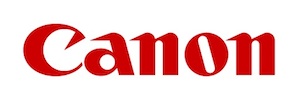Frank's Book Tour
Frank takes us on a video tour of one of the CalPoly archives of bound volumes of printing magazines. Very few of these publications have been digitized and historians will have to dig through these printed volumes to find pertinent information.
 Official camera partner of WhatTheyThink and the drupa daily. Video from drupa 2024
Official camera partner of WhatTheyThink and the drupa daily. Video from drupa 2024
Video Center
- Questions to ask about inkjet for corrugated packaging
- Can Chinese OEMs challenge Western manufacturers?
- The #1 Question When Selling Inkjet
- Integrator perspective on Konica Minolta printheads
- Surfing the Waves of Inkjet
- Kyocera Nixka talks inkjet integration trends
- B2B Customer Tours
- Keeping Inkjet Tickled Pink
© 2024 WhatTheyThink. All Rights Reserved.















Discussion
By Michael Jahn on Mar 15, 2019
When I was deposed for a patent dispute related to digital workflow, I was able to find articles in Seybold reports prior to 1997 there - was a great resource !
By Dov Isaacs on Mar 15, 2019
It is great to see all these publications coming together at Cal Poly GrC.
That having been said, it would be great if all these volumes could be scanned at high quality / high resolution, OCR'd, indexed, backed-up, and made available offline such that (1) they could be of greater utility to researchers as well as students in the future and (2) there is protection against physical loss (those classrooms at Cal Poly are really not for archival storage and permanence!
By Adam Dewitz on Mar 15, 2019
Dov - every time I see Frank I mention scanning and putting these types of resources online. Scanning/digitizing is expensive.
It's not just digitizing but also making them available. RIT (Cary Library) has the digitized copies of Inland Printer/American Printer but they have decided to not make them open to the public. Select versions have leaked out here and there are wonderful (https://www.museumofprinting.org/site/assets/files/1052/inlandprinter-nov1884.pdf)
WhatTheyThink has the archive of Printing News and we're trying to figure out how to, in a cost-effective and non-destructive manner, scan them to put them online.
We're so behind other industries that have created open internet archives of the knowledge and culture important to that industry.
Maybe we need.to launch a crowdfunding campaign to purchase a Kirtas scanner for the the Museum of Printing.
By Dov Isaacs on Mar 15, 2019
Adam - strongly agree! But the problem transcends the cost of a high end scanner.
There is also the issue of the cost of having a professional who knows what they are doing properly and carefully scan these treasures such that both fidelity of content and the physical integrity of the original volumes are both maintained. The time and effort (and thus cost of professional personnel involved in same) far outweighs the cost of a scanner. Over a year ago, I had a tour of the Rijksmuseum's (Amsterdam, NL) archiving operations and it was exceptionally impressive as to the quality achieved, but it came at a very high cost.
We also have an issue as to where these digitized assets will be maintained. As many of “us” have learned over the years, simply digitizing content does not ensure safety over time. Websites come and go. This type of content must be safely archived for the long term.
By HARVEY LEVENSON on Mar 15, 2019
This is another amazing historical account by Frank Romano, the printing industry’s ultimate historian. It is noteworthy that the collection that Frank referred to came to Cal Poly as a result of the dedicated efforts and funding resources provided by industry authority and icon, Ray Prince. The collection, with over 30,000 volumes and documents, is named, “The Raymond J. Prince Graphic Arts Collection” (RJPGAC). Oversight for organizing and cataloging is being handled by another industry notable, Cal Poly Emeritus Professor, Gary Field. The collection is for student, faculty, and industry research. It is the largest collection of its kind and also used for patent Prior Art explorations.
By Adam Dewitz on Mar 15, 2019
Agree that this goes beyond just buying a scanner but that is a start and there are many items of printing industry heritage that are rotting away in archives, even at MoP. Especially the periodicals, pamphlets, and other media that reported on the progress of our industry. For example the early 20s issues of Printing News are falling apart and will soon be gone.
Amazon Web Services, Google Cloud, and the like have solved the storage and retrieval for us. And there are organizations like Internet Archive https://archive.org that support these types of activities.
Next time you're in Rochester see if you can visit Kirtas. Their higher end devices are impressive. They claim that the paging turning method is less stressful than a human turning a page.
Discussion
Only verified members can comment.